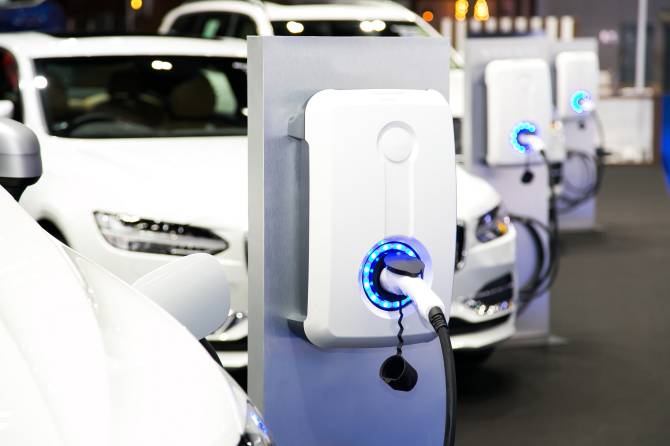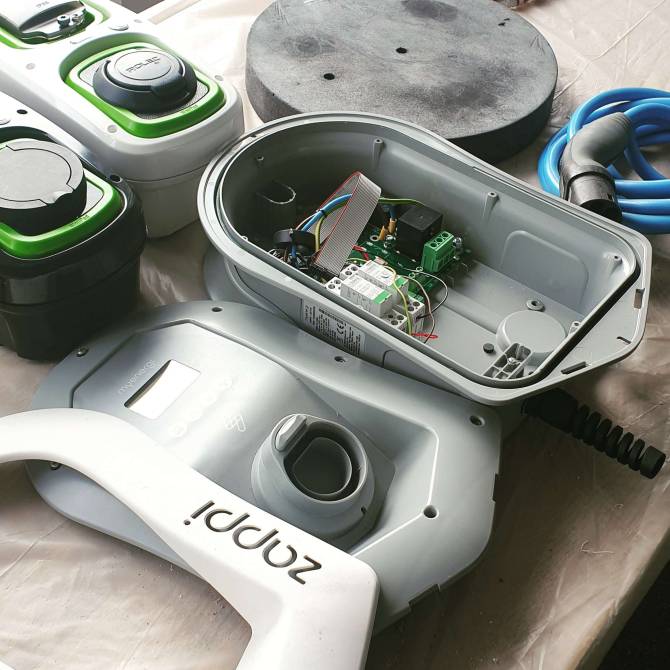EV training has evolved!
I have been keeping a very close eye on the world of Electric Vehicles (EV) over the last couple of years. Taking part in consultations, projects and providing technical guidance online.
The EV charging infrastructure development industry is facing mounting pressure, as the UK strives towards becoming a net-zero economy by 2050 and as the upcoming 2030 ban on new petrol and diesel cars approaches.
- The UK government will phase out the sale of new petrol- and diesel-fuelled vehicles by 2030 and hybrids by 2035.
- The market shift toward electric vehicles and hybrid vehicles is already underway. One in six new vehicles sold in the UK had a plug. Hybrid vehicles will decline as we move toward the 2030 mark.
- To meet the demands of this change, EV charging infrastructure is required across the country – in homes, at workplaces, street-side locations, destination locations like shopping centres and at re-fuelling stations.

All this opportunity resulted in a rush to put a training solution together. Funding was made available to force growth in the EV marketplace, assisting in the sales of EV and the installation of suitable infrastructure.
Two training solutions were recognised for the funding, one training solution between a CPS and a manufacturer, the other via an Ofqual regulated qualification.
Both of these training solutions were nowhere near the benchmark or standard that was needed. I attended the Ofqual regulated 2919 via a CPS and the training was delivered well, but the content within the qualification wasn't detailed enough and provided no opportunity to develop.
I chose for SparkyNinja not to offer this course as the qualification wasn't workable to the standards we set. We just wouldn't be able to cover the necessary requirements to carry out the installation of EVSE safely with the learning objectives demanded - Learning objectives like terminating SWA cables and safe isolation were wasting valuable assessment time as these should have been verified as existing competence prior to enrolment.
The change
Following an audit and review with industry stakeholders it was determined that the quality of workmanship for the installation of EVSE in the intial phase post this training was far below an acceptable standard. This included all types of EVSE ranging from domestic to largescale super highway EVSE installations.
Add to that the continuing development of EVSE protection technologies making changes to the code of practice for the installation of electric vehicle charging points and BS 7671:2018, then it was clear that the industry had to develop an improved competent framework.
New EV suite
City and Guilds have worked with industry bodies and industry stakeholders to develop a significant increase in the competence standard of the EV installer.
To start it off, it has been decided that only electricians shall be considered to be accepted to enrol on this new suite of qualifications - therefore a long list of prior learning and technical references has been introduced - you can see this on the course product page.
Restricting enrolment to electricians should ensure that the learners on the new EV suite will have at least Level 3 Electrotechnical training and experience.
The three new courses are:
- The Design and Installation of Domestic and Small Commercial Electric Vehicle Charging Installations (Level 3)
- The Design and Quality Assurance of Largescale Commercial Electric Vehicle Charging Installations (Level 3)
- The Installation and Maintenance of Largescale Commercial Electric Vehicle Charging Installations (Level 3)

SparkyNinja has chosen to provide these new qualifications in support of the industries effort to improve the technical standard of the EV installer going forward.
This newer training will include dedicated studies and practices on diverted neutral current (DNC), earthing of EVSE, touch voltage risk assessment and commissioning.
You can find these on the COURSES page.
